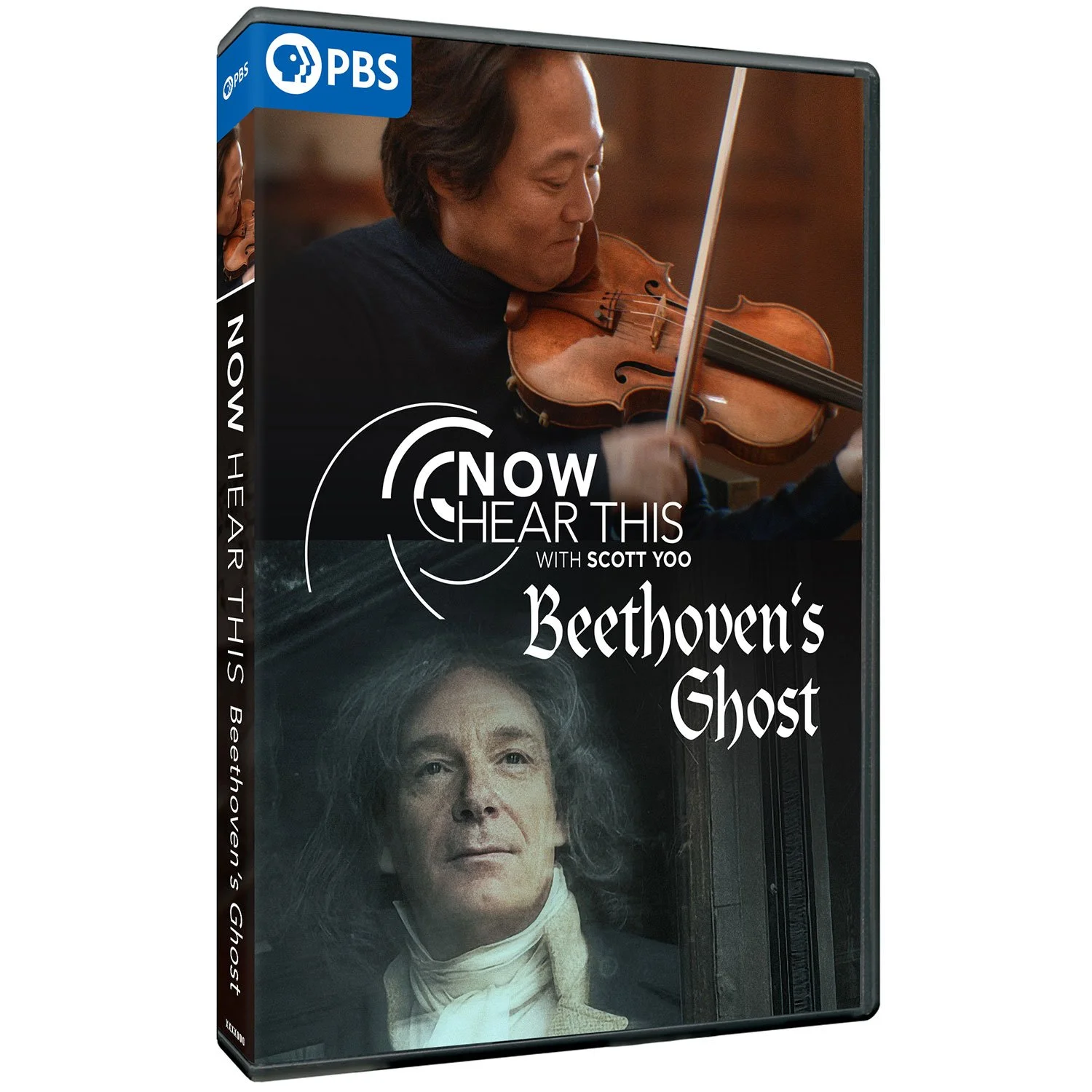By John Anderson
The series “Now Hear This,” part of the PBS institution “Great Performances,” has been what one might call stealthily educational: The music can be so distractingly delicious that you might not notice you’re learning something, about either the life, work and techniques of the great composers, or how performers approach their music.
Having devoted programs to Bach, Handel, Scarlatti and Mozart (and my favorite, last autumn’s “The Schubert Generation”) it seems inevitable that host Scott Yoo would aim his violin and expertise at Ludwig van Beethoven, resulting in eloquent interpretations—notably by pianist Anna Polonsky, who awes. What’s unexpected is the close-to-goofy conceit with which writer, director and producer Harry Lynch has framed the episode.
In “Beethoven’s Ghost,” the finale of the “Now Hear This” season, Mr. Yoo and several fellow musicians set themselves up at a regal manor house in the Berkshires to record some of Beethoven’s “most personal” music. Central is the “Ghost Trio,” so named (not by its composer) because of the eerie opening of its largo movement. It was also written at a crisis point in Beethoven’s life: Once the finest pianist in Vienna, he was forced to face the fact, during rehearsals of the “Ghost,” that his deafness had finished him as a performer.
How did he feel about this? Well, we have his ghost to ask. Actually, we have Sigmund Freud’s ghost (Martin Rayner) to ask Beethoven’s ghost (John Hans Tester) about his mother, his father, and whether being such an obsessive perfectionist in life was perhaps the secret of his musical genius.
In the dramatic scenes, Mr. Tester seems to be channeling Captain von Trapp from “The Sound of Music” and Mr. Rayner’s Freud is a pretty by-the-books Viennese psychoanalyst, and the whole exercise is a rather silly way of explaining Beethoven’s life and art to a PBS audience that might well know much of it already. Luckily for us, they go unseen by Mr. Yoo and his crew—cellist Bion Tsang, violist Toby Appel and the aforementioned Ms. Polonsky—as they and engineer Reid Mangan go about setting up a professional studio in the Gilded Age mansion. The discussions involve acoustics, which will intrigue music fans; Beethoven’s predominant use of major keys; and the assemblage, for lack of a better word, of a finished recording. The fact that recordings are constructed from different takes isn’t news, but watching it being done does take some romance out. At the same time, you’re given a real sense of how unforgiving first-rate performers are of their own performances. After a run through of the String Quartet No. 14 (the second violinist is Emily Daggett Smith), Mr. Appel calls the playback “vertical and precise” which isn’t a compliment. Engineer Mangan agrees: “The edits have sucked the humanity out of it.”
Amid all this, Ludwig and Sigmund debate musical genius and childhood trauma and wander into comedy: When Mr. Yoo suggests that a “bonus track” on their recording be a rendition of the “Ghost” that includes Beethoven’s deleted passages—which they perform from a copy of the original manuscript—the ghostly composer grows apoplectic, practically pulling his already wild hair out. Luckily, his therapist is at his side.
Read the full review…












